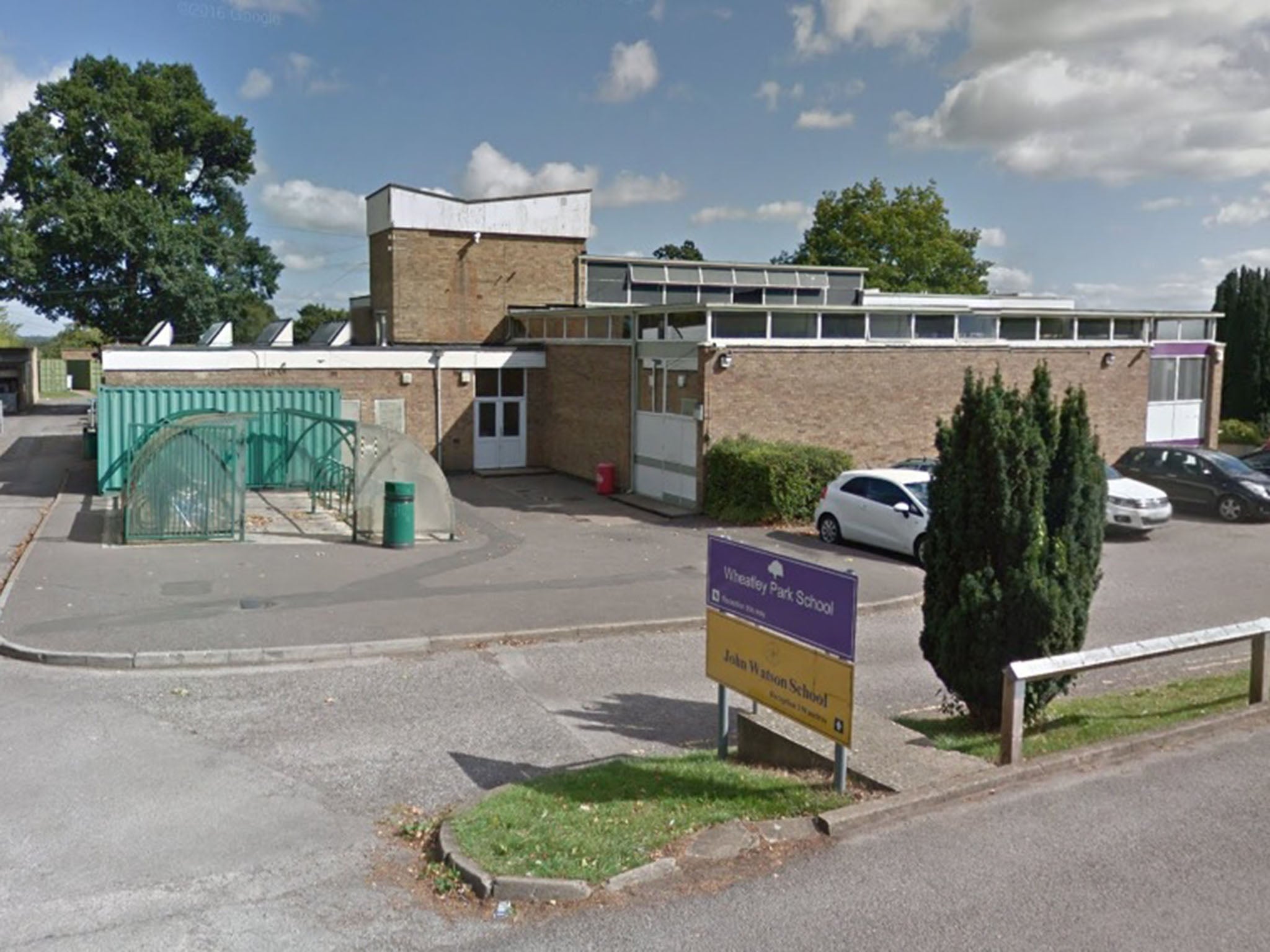Theresa May’s former school plans to close early on Friday amid ‘enormous’ budget pressures
'The school currently has some reserves but will quickly tip into deficit unless we can find further ways to reduce costs significantly,' headteacher and chair of governors say

Your support helps us to tell the story
From reproductive rights to climate change to Big Tech, The Independent is on the ground when the story is developing. Whether it's investigating the financials of Elon Musk's pro-Trump PAC or producing our latest documentary, 'The A Word', which shines a light on the American women fighting for reproductive rights, we know how important it is to parse out the facts from the messaging.
At such a critical moment in US history, we need reporters on the ground. Your donation allows us to keep sending journalists to speak to both sides of the story.
The Independent is trusted by Americans across the entire political spectrum. And unlike many other quality news outlets, we choose not to lock Americans out of our reporting and analysis with paywalls. We believe quality journalism should be available to everyone, paid for by those who can afford it.
Your support makes all the difference.Theresa May’s former school is looking to shut early on Fridays because of “enormous” budget pressures.
Wheatley Park School, a secondary near Oxford with more than 1,000 students, is proposing to remove an hour-long period on the last day of the week in a bid to make “essential savings”.
It comes after a number of schools have brought in four-and-a-half-day weeks amid tight budgets.
The school, which the prime minister attended 50 years ago, said the move would help save money
In letter to parents, headteacher Tim Martin and chair of governors Philip Baillieu, said: “School budgets are under enormous pressure and our own is no exception. The school currently has some reserves but will quickly tip into deficit unless we can find further ways to reduce costs significantly.”
They added: “Reducing the school week by one period would mean fewer lessons would need to be taught overall, which in turn would mean fewer teachers would be needed to staff the school.”
Ms May won a place at what was then Holton Park Girls’ Grammar School when she was 13. She was a pupil there when it became Wheatley Park School in 1971.
During her premiership, more than a thousand headteachers, including Mr Martin, took the unprecedented action of marching on Westminster to lobby for more school funding.
The proposal at the former school – which would see students go home at 2pm on Fridays – would come into force from September if confirmed.
Although pupils would leave earlier, some staff would stay to work on collaborative lesson planning and curriculum development.
“Parents and carers might be rightly concerned that having 24 instead of 25 lessons a week would be detrimental to children’s education,” Mr Martin and Mr Baillieu said in their letter. “However, the school would seek to minimise any negative impact on students’ learning by protecting lessons in the core subjects.
“We anticipate that more collaborative planning amongst staff would increase the quality of lessons, offsetting the reduction in quantity.”
The school is consulting with pupils, parents and staff, and a final decision is expected imminently.
The move comes as hundreds of parents from across the country are set to march on Westminster to demonstrate against funding cuts that have forced schools to close at lunchtime on Fridays.
Campaign group Save Our Schools will bus children and parents from across the country to Downing Street next month to oppose the introduction of shorter school weeks.
A Department for Education spokesperson said: “The structure of the school day should never be the cause of inconvenience to parents and carers, and it is unacceptable for schools to shorten their school week when it is not a direct action to support and enhance their pupils’ education.
“Under the national funding formula, funding for schools in Oxfordshire has increased by 3.4 per cent per pupil, compared to 2017-18.
“This is above the national average of 3.2 per cent and is equivalent to an extra £20.6m in total, when rising pupil numbers are taken into account.”
Additional reporting by SWNS
Join our commenting forum
Join thought-provoking conversations, follow other Independent readers and see their replies
Comments